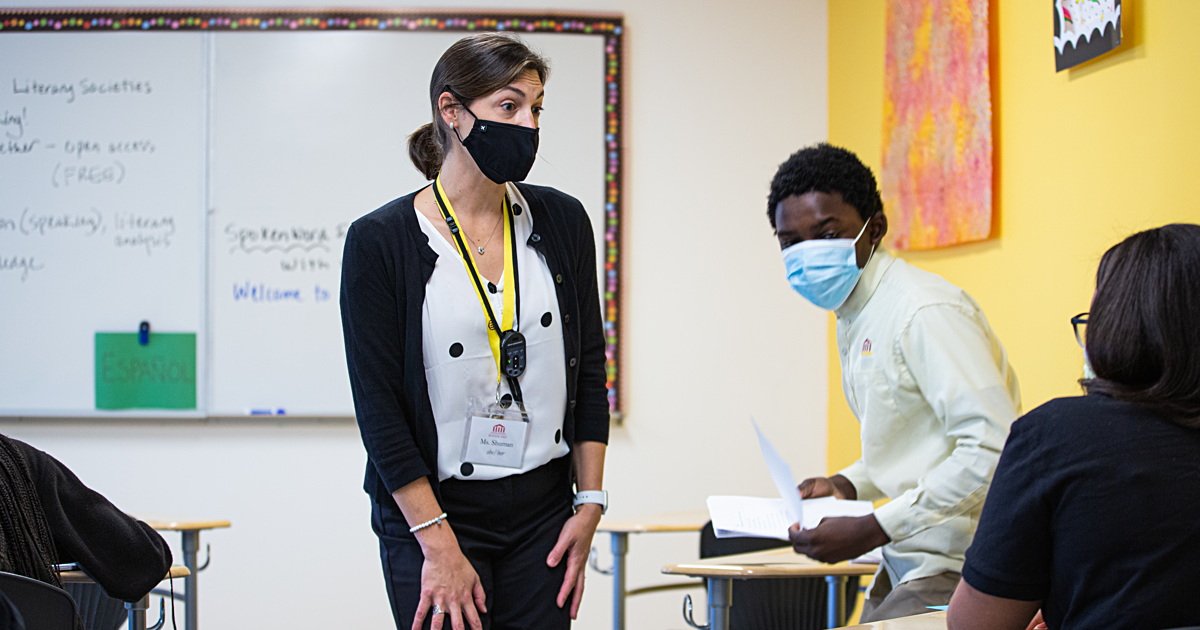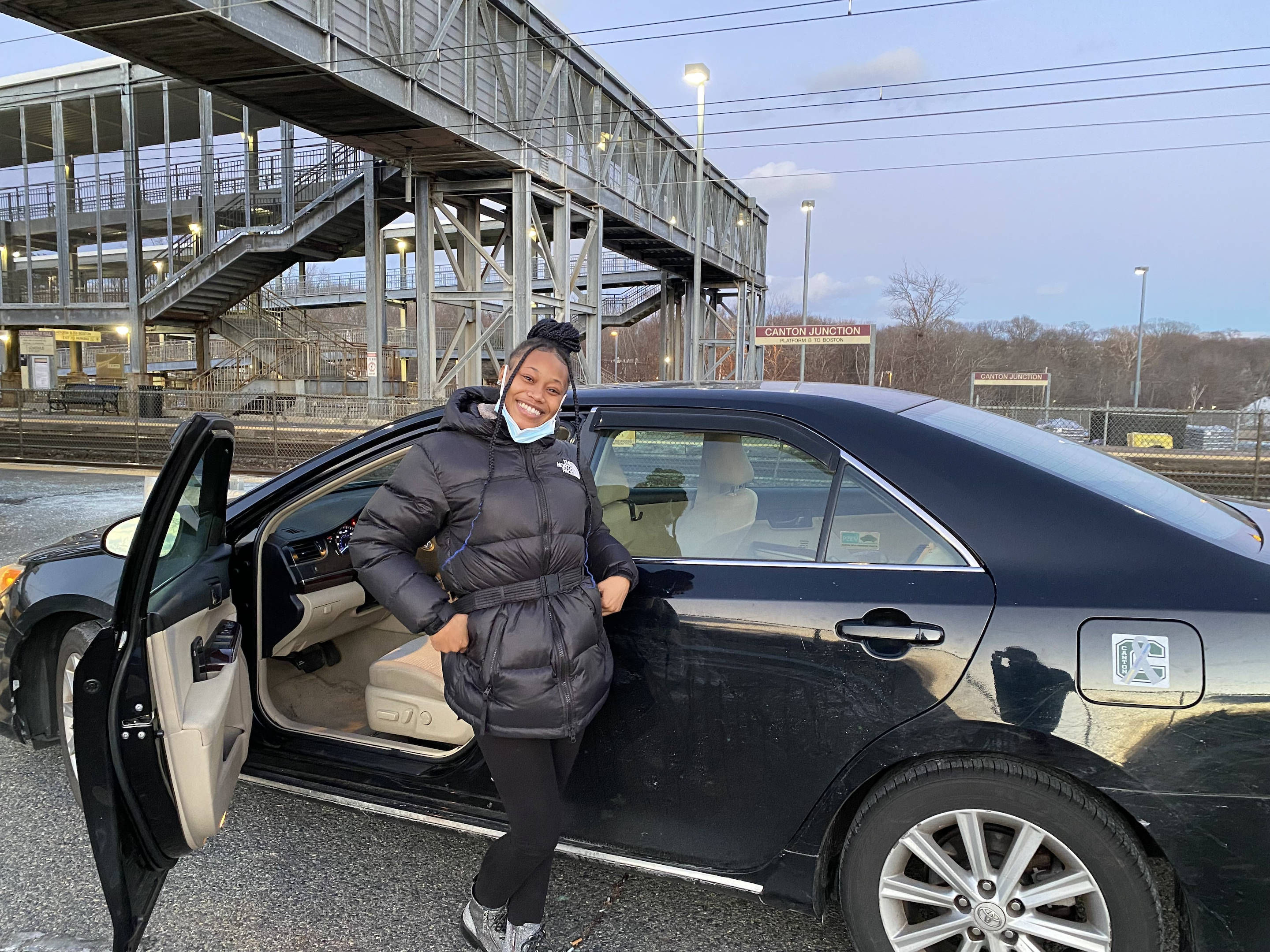
Jun 15, 2022 4:40:15 PM
by Tara Shuman
“How’s school?” friends and family asked me, all year long. I gave my typical response, “Always interesting!”
But the truth?
Back in the fall, expecting a “normal” year, at last, I ordered a brand new poster of the Maya Angelou quote I cherish more than any other:
“People will forget what you said. People will forget what you did, but people will never forget how you made them feel.”
Indeed, I had already started to forget some of what has been said and done throughout these most bizarre and challenging years of pandemic teaching. (Hybrid learning? Much of it is a blur now.) But somehow, through it all, I can remember so much of how I felt. I’d imagine many colleagues and students would agree.
At Boston Prep, we often ask our students how they feel. The most common answer this year? Tired.
Some of my students were tired because they work jobs with long, late shifts to help support their families. They were tired because, all too often, they woke up to news that this world is not safe for them because of the color of their skin. They were tired because of homework and sports and college essays. They were tired because they have seen loved ones grind out long days for minimal pay.
On top of it all, many students were sick, most were scared, and all too many witnessed loved ones battle COVID-19 in the most courageous yet tragic of ways.
I couldn’t take away these challenges. What I learned I could do, though, is ensure that, while feeling tired, my students also felt loved, heard, and supported.
By the middle of the year, instead of getting frustrated when a student put their head down on their desk, I asked, “Did you work a late shift last night?”
In the past, I might have raised my voice when speaking to a student who was raising their voice with me. This year, I learned to breathe, find calm, and search for the right time to ask, “Are you doing okay? How can we support you?”
Teaching through our third pandemic-affected school year required us to support each other, too.
There was no easy or quick solution to the challenges our educators faced during their third year of pandemic-affected teaching. But all year long I saw and felt the power of compassion, patience, selflessness, and most of all, teamwork.
Earlier this year, as I was leaving school after a hard day, I walked by a young colleague curled up in a chair. Kiera, one of my former students, had returned to Boston Prep this past fall, joining our team as a teacher’s assistant, excited to give back to her community—even despite a long, expensive commute from Providence via train, bus, or Uber.
When I asked her if she was O.K., I saw the tears in her eyes above her mask. She had missed her train. Her Uber had canceled on her twice. Admittedly, I wanted to keep walking, get in my quiet car, and go home. I was tired. But Kiera’s eyes held the same hopelessness I’ve felt so many times, especially over the past two years.
“Get up. Let’s go,” I told her, and we headed to my car. As we drove away from school, Kiera fought back more tears. Navigating her first year as an educator, in the midst of a pandemic, was hard, and the commute seemed to be the straw that was breaking her back.
I asked Kiera why she didn’t learn to drive. “I have my permit, but who’s going to teach me?” I pulled over into a parking lot on Route 138. “Drive, then,” I told her. At first, she laughed. But then, she got behind the wheel.
For the next couple of months, Kiera and I left school together daily so she could practice driving. Those many afternoons of practice paid off when Kiera walked into school one morning, grinning from ear to ear, eager to share that she was officially a newly licensed driver.

The time I spent driving with Kiera made me a better teacher. Watching her persist until she had overcome what once seemed an insurmountable challenge reminded me that we can all do hard things.
I hope our time together made Kiera not only a better driver but a better teacher, too.
I know one day Kiera will forget the little things I’ve said and done to support her in her first year as an educator. But I believe that she will remember how she felt, both in and out of the classroom: strong, loved, and hopeful.
Ultimately, that’s what I think my students will remember about these most unusual, tiring school years.
When they forget a teacher who learned how to whip around Zoom breakout rooms like a teacher-wizard, or who figured out that a karaoke machine with a microphone would help project their voices over the loud air purifiers, I hope they’ll remember a teacher who, even when they were at their most tired, made them feel strong, loved, and hopeful.
Tara Shuman is a high school English Language Arts teacher at Boston Prep, a charter public school in Boston, MA.
The story you tell yourself about your own math ability tends to become true. This isn’t some Oprah aphorism about attracting what you want from the universe. Well, I guess it kind of is, but...
If you have a child with disabilities, you’re not alone: According to the latest data, over 7 million American schoolchildren — 14% of all students ages 3-21 — are classified as eligible for special...
The fight for educational equity has never been just about schools. The real North Star for this work is providing opportunities for each child to thrive into adulthood. This means that our advocacy...
Your donations support the voices who challenge decision makers to provide the learning opportunities all children need to thrive.
Ed Post is the flagship website platform of brightbeam, a 501(c3) network of education activists and influencers demanding a better education and a brighter future for every child.
© 2020–2024 brightbeam. All rights reserved.
Leave a Comment